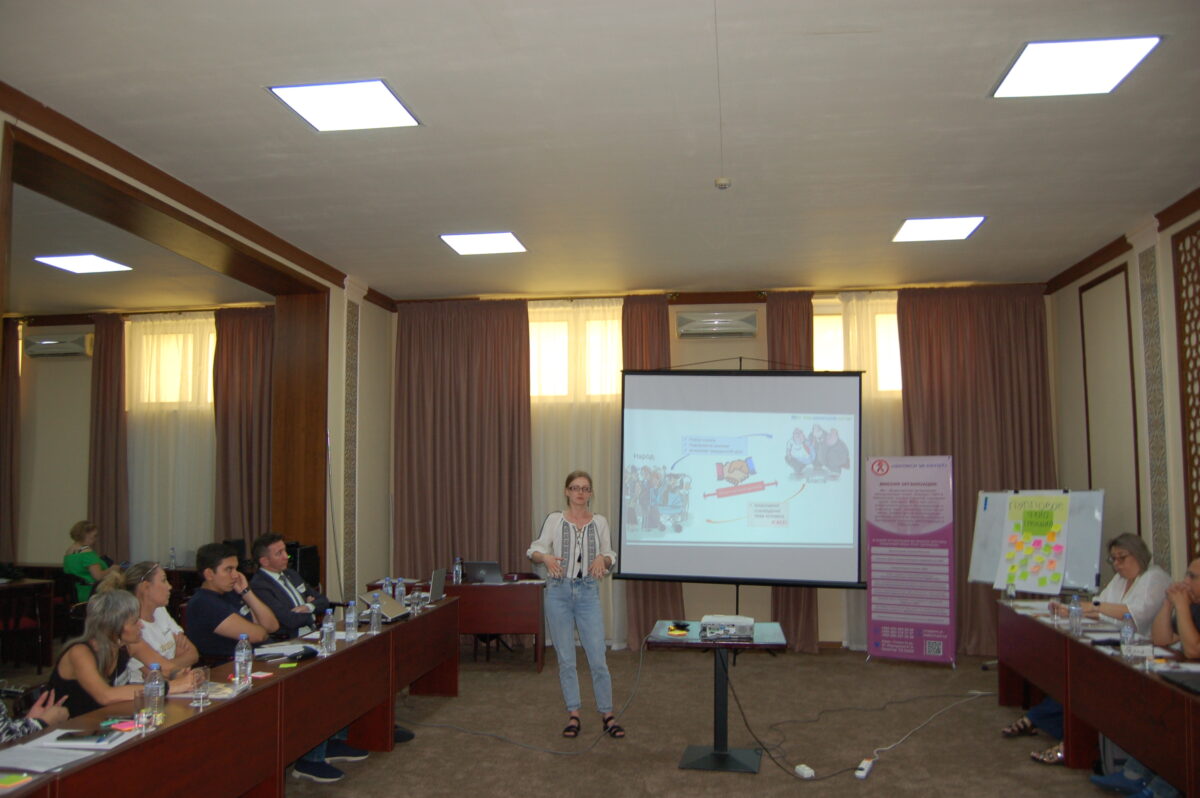On June 22-23, a training was held on “Reducing Barriers Related to Violation of Human Rights (ReAct)”, in Tashkent, for current and future REACTORs that help people living with HIV and vulnerable groups overcome legal barriers to accessing services regarding prevention and treatment of HIV / AIDS with the participation of regional representatives of the organization (from Samarkand, Bukhara, Fergana and Namangan regions).
Goal of the training: Expand the current assistance to people living with HIV and members of vulnerable groups to overcome legal barriers to accessing HIV/AIDS prevention and treatment services.
The lead expert of the training is the Regional REACT Coordinator for Eastern Europe and Central Asia Victoria Kalyniuk from the Alliance for Public Health. Theoretical lectures, group discussions, practical session on working with the REACT tool are geared toward increasing the knowledge, apprehension and competencies of outreach workers, peer consultants from Tashkent and other regions of the Republic of Uzbekistan.
On June 22, the official opening of the seminar began with a welcoming speech by the representative, they talked about advanced training, experience in Uzbekistan under the program “Reducing Barriers Encountered with Violation of Human Rights (ReAct)”. The expectations of the participants were heard and exceeded. At the end of the welcoming part, the team of trainers wished us a further progenitive workshop.
Therefore, a presentation was held on the review of the collected statistics of the community of rights for 2021-2022 in Uzbekistan, as well as it was avowed that it was possible to document through the REAct program.
After a short coffee break, the situation with the country’s legislation regarding PLHIV and key groups in Uzbekistan was described from top to bottom. A small discussion was held during which the situation regarding legislation in various regions of the country was analyzed, the participants of the training shared information with regard to their regions, as well as their vision of what can be done to envigorate these problems and in which direction it is worth moving.
The next in turn was the session, during which the training participants were told about the principles of working with the REAct system. The method of documenting cases in the system was clearly and markedly explained.
Before the coffee break, the participants were divided into groups and futhermore all the details about the upcoming practical group session were announced to them. After that, the participants could discuss the implementation of their task during a coffee break. During the session, the members of the groups had an active discussion of situations of human rights violations by various perpetrators. Subsequent to this each group related the situations known to them according to the task, and the subtle nuances of each of the situations described by the participants were analyzed during the general discussion.
The second day strated with a session on how to react to a violation of human rights, different types of cases were analyzed, and there were explained the points related to the status of the case in the REAct database.
Besides, a brainstorm was also held, during which the participants of the training were able to share which authorities can be contacted in various cases that have occurred with clients and where the necessary services can be obtained.
After that, a role-playing game was held, during which the situation of the client’s appeal to the outreach worker was staged. Running through the results of this session, a discussion was held, during which there were analyzed the frequently encountered problems when clients contacted outreach workers, and the important points of presentation to the client and communication by the outreach worker were clarified.
At the end of the training, the participants expressed their feelings and shared their opinions about the training and asked multiple questions that they had left unsettled after the training.


